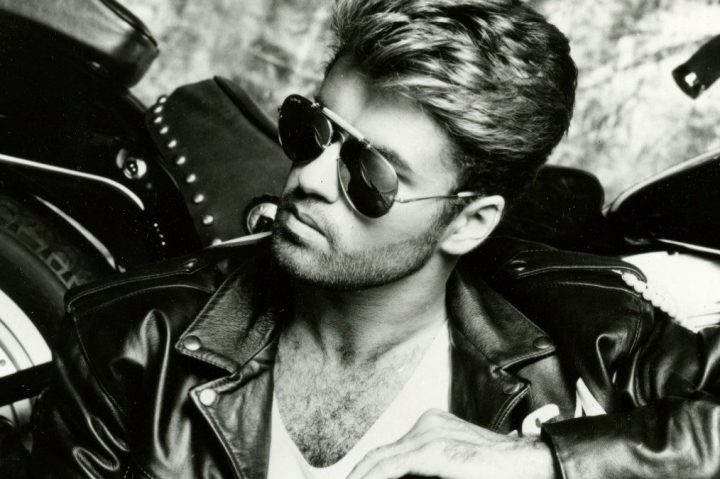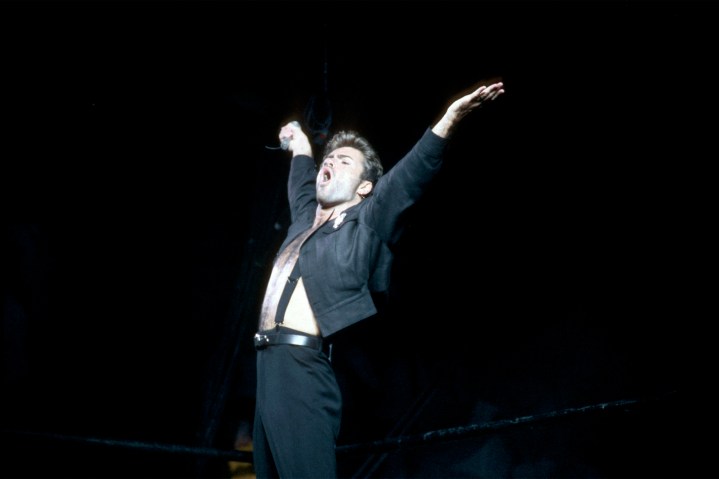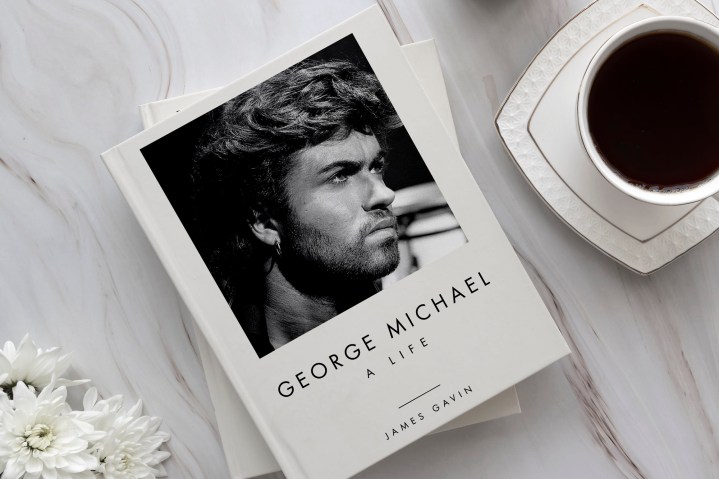The 1980s produced a plethora of memorable pop stars: Michael Jackson, Madonna, Prince, and countless others. Most are still remembered today while some have been long forgotten. (Kim Carnes, where did you go?) And then there’s George Michael, who is remembered but usually for the wrong reasons: his drug use, his well-documented arrest in a public bathroom, his subsequent outing by the press, and health problems at the end of his life.
Yet what should be remembered is his music, which is far richer and more lasting than commonly believed. James Gavin’s superb book, George Michael: A Life, not only successfully makes the case for George Michael the musician, particularly his later albums Older and Patience, but also George Michael the man, who was tortured by the pop star image he created early in his career and spent the rest of remainder of his life trying to destroy.

Digital Trends: What drew you to write a biography of George Michael?
James Gavin: I was initially drawn to George Michael when he released his album Older. Until that time, my head had been in a completely different place than pop music. I was in love with the Great American Songbook, but that album spun my head around for so many reasons. I was extremely moved by the sadness and the rawness of it, and I knew that George was sharing pages from his diary in that album. He had suffered this incredible loss of the love of his life. None of that had been revealed publicly, although there were hints in that album because it was dedicated to Anselmo Feleppa and it wasn’t difficult to read between the lines and figure out who this person was to George.
Later, he released an album called Patience, which was rawer and more autobiographical, and I wanted to know the entire backstory. And it wasn’t until December 25th, 2016 that I decided to do something about it. Like everybody else, I heard the news about his death on my phone. By that night, I thought everyone is going to want to write this book and I could at least throw my hat in the ring. Little did I know I was the only person who wanted to write that book. Certainly in the U.S. and the U.K., a couple of little quickie biographies of him had been released, but as far as I know, I am the only American writer who went after that project, and thank God, I got it.
You’ve written biographies of Lena Horne, Peggy Lee, and Chet Baker. What was different about researching and writing this biography than those previous ones?
Those biographies, comparatively, were a breeze to do. I got almost everybody that I wanted to get. I didn’t have to do too much groveling in most cases in order to get people to talk to me.
There is a huge difference between a legend and a superstar. It has to do with the level of prestige and also the layers of protection around that person. With George Michael, I found myself fighting to get people to talk to me. This was partly because it was so close to his death that the people who knew him were still reeling over his passing. But it was also because George had led such a tabloid-friendly life, which resulted in so many writers digging around for dirt about his life. I found myself absorbing the sins of those writers.
People who knew George mistrusted me from the beginning, and it took a long time to start gaining their trust. About two years into the project, most of the “no’s” turned into “yeses.” And by the end of the book, I had interviewed well over 200 people and accessed well over 2,000 articles. I knew that I was in a position to tell George’s story more truthfully than anybody ever had.

Was there anyone you wanted to talk to for your book but couldn’t get?
Oh, God, yes. I wanted to talk to George’s inner circle, the people that George named in his will and whose relationship with him hinged largely on their silence. George’s entire life was shrouded in silence and secrets, and the people who stayed close to George all the way through were those whom he could trust to keep his secrets. I tried to talk to Elton John; no luck. Boy George; no luck. Any pop star of his era, I got access to very few of them. But as the project went along, I realized that through talking with people who had known them both, I found out everything I needed to know, like George’s relationship with Elton, for example. That gave me the freedom to tell the truth. I was turned down or ignored by as many people as I was welcomed by and in the end, I got everything I wanted.

George Michael struggled a lot with his pop idol image as well as his sexuality. How did this affect his music as well as his personal life?
The truth of George Michael’s music was the feeling and the pain. That part was real. He could not fill you in honestly on the details. He was locked inside a closet of his own making, which is not to say that that decision is easy. George was tortured by a long list of reasons why he shouldn’t come out, the most obvious of which would be losing everything that he had fought so hard and so successfully to gain.
I cannot stress enough how scary that decision was for people of George Michael’s generation because you really thought that you might lose everything if people knew that you were gay. That’s why the Older album was a breakthrough for him because he was more open about his pain and struggle with living a closeted life.
How did it affect him personally? Even though he was out to certain people in his personal life, it meant that he was living in constant terror of being found out. What would people think? He had a great deal of internalized homophobia that had been instilled in him largely by his father.
He created a George Michael character that was not based on the truth. It was a total fabrication. And that’s who the world ended up falling in love with. George knew from then on that he was living a tremendous lie. I was so touched by hearing George’s own comments on how it felt to be on the Faith tour, which was a miserable experience for him because he felt that he was standing up in front of stadiums full of people all over the world as a fraud. It was from that moment on that George slowly and methodically went on to destroy the George Michael image. Basically, the first half of his life was spent creating George Michael, and the second half was spent tearing George Michael down.
One of the surprising things I discovered by reading about it was how meticulous and controlling he was of the George Michael image, both in creating and destroying it. For you, what was the most surprising thing you discovered while researching and writing this book?
How little happiness he got out of having achieved his wildest dream. How much self-hatred burned inside him. How deeply scarred he was by having grown up in a family where homophobia reigned, as it did in most families of that generation.

What do you want readers to take away after they’ve read George Michael: A Life?
I want people to feel some compassion for this guy and what he was going through. It’s easy to look at the life of someone like George Michael, who by all appearances was incredibly privileged and wealthy beyond imagination, and judge him for his mistakes. But I would urge readers to feel or to look for some empathy for George and to do what I had to do in writing this book, which is to try and put themselves in his shoes. This was a guy who suffered from incredible and incurable self-hatred.
I hope that in the end, George Michael is not seen as a tragic figure, but that his name evokes good feelings in people. It takes them back to a song of his that they loved, that had some kind of imprint and impact on their lives. That’s pretty wonderful, isn’t it?
I have to ask this question given the subject involved: What’s your favorite George Michael song and why?
Oh, that’s easy. It’s Spinning the Wheel from the Older album.
That song is an extraordinary piece of work. It was an explicit statement about promiscuity in the age of AIDS. Any gay man who heard that song could not have failed to know exactly what George was talking about. The spooky nighttime atmosphere and the prowling quality were evocative of all of George’s cruising in public places. That song was by far the most honest statement [about his sexuality] that he had made up until that point. And it went almost completely unnoticed, which astounds me that more writers did not draw attention to that song and what it obviously meant. Even after George had come out in many ways, he was still in the closet. He was still a man who was burdened by his secrets.
George Michael: A Life by James Gavin is available from Amazon and other digital outlets and bookstores nationwide.



